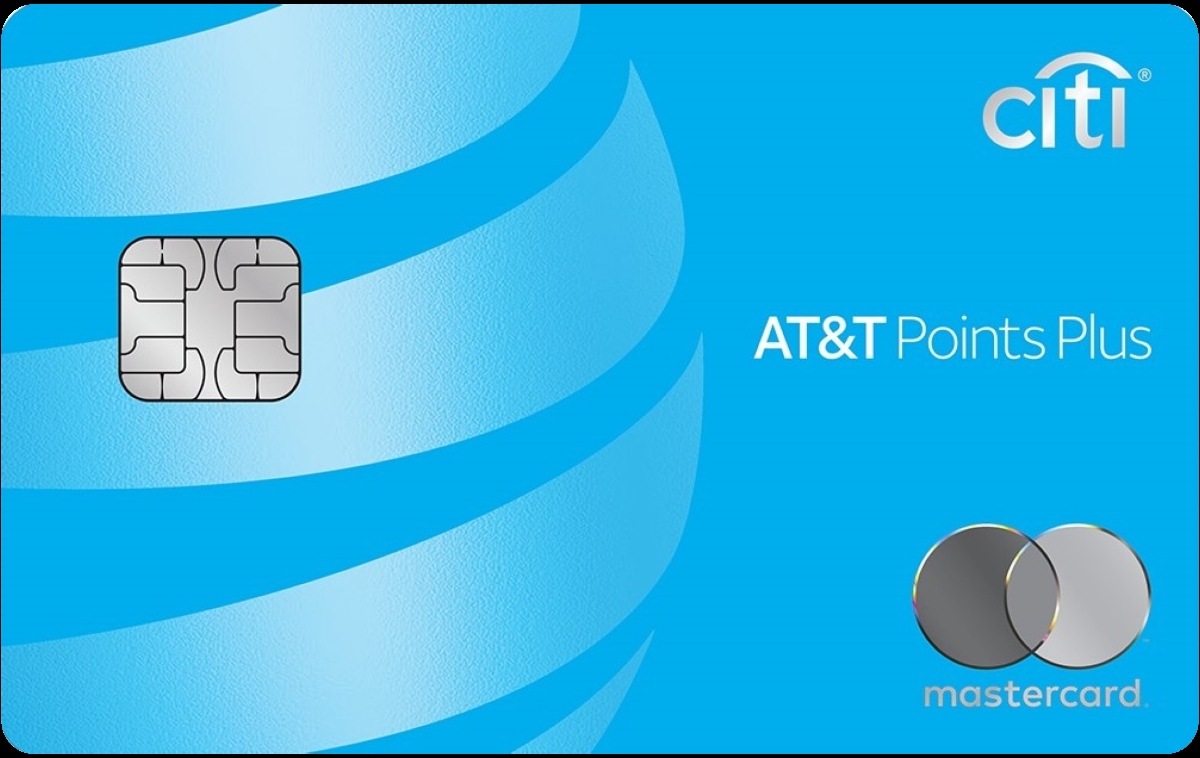

Finance
What Credit Bureau Does Citi Use
Published: January 12, 2024
Citi uses various credit bureaus, including Experian, Equifax, and TransUnion, to assess your creditworthiness for finance-related matters. Learn more about Citi's credit reporting practices and how they impact your financial decisions.
(Many of the links in this article redirect to a specific reviewed product. Your purchase of these products through affiliate links helps to generate commission for LiveWell, at no extra cost. Learn more)
Table of Contents
Overview of Credit Bureaus
When it comes to understanding credit and its impact on our financial lives, credit bureaus play a crucial role. Credit bureaus are agencies that collect and maintain information about individuals’ credit histories and creditworthiness. They gather data from various sources, such as lenders, credit card companies, and public records, and compile this information into credit reports.
These credit reports contain valuable information about a person’s borrowing and repayment history, including details about their current and past loans, credit cards, and other financial obligations. Credit bureaus also assign credit scores to individuals based on their credit reports. These scores are often used by lenders to assess the creditworthiness of potential borrowers.
There are three major credit bureaus in the United States: Equifax, Experian, and TransUnion. These bureaus collect and maintain information on millions of individuals, helping lenders make informed decisions when evaluating loan applications.
Credit bureaus play a vital role in maintaining the fairness and accuracy of credit information. Under the Fair Credit Reporting Act (FCRA), consumers have the right to access their credit reports for free once a year and dispute any inaccuracies they find. This ensures that individuals have the opportunity to correct or remove any erroneous or outdated information that may affect their creditworthiness.
Having a good credit history and a high credit score can open doors to better loan terms, lower interest rates, and increased borrowing power. On the other hand, a poor credit score can limit access to credit and result in higher interest rates or even loan denials.
Understanding the role of credit bureaus and how they compile credit information is important for anyone looking to build and maintain a strong credit profile. Knowing how credit bureaus operate can provide insight into the factors that influence credit scores and ultimately affect an individual’s financial opportunities.
Importance of Credit Bureaus
Credit bureaus play a crucial role in the financial world by providing lenders, businesses, and individuals with valuable credit information. Here are some key reasons why credit bureaus are important:
- Accurate credit assessment: Credit bureaus collect and analyze data from various sources to create credit reports and assign credit scores. These reports help lenders assess the creditworthiness of individuals and businesses, enabling them to make informed lending decisions. By relying on accurate credit information, lenders can minimize the risk of default and ensure responsible lending practices.
- Facilitating financial transactions: Credit bureaus enable the smooth flow of financial transactions by providing accurate and up-to-date credit information. When individuals apply for loans or credit cards, lenders typically request credit reports from the bureaus to evaluate their creditworthiness. This process helps lenders determine the terms and conditions of the loan, such as interest rates and borrowing limits.
- Building trust and credibility: Credit bureaus promote transparency and trust in the financial system. By maintaining comprehensive credit histories and scores, they provide a standardized method of assessing creditworthiness. This allows lenders, businesses, and individuals to establish trust in their financial relationships, leading to increased opportunities for borrowing, partnerships, and economic growth.
- Preventing fraud and identity theft: Credit bureaus play a vital role in detecting and preventing fraudulent activities and identity theft. By monitoring credit activity and detecting suspicious patterns, they can alert individuals and businesses of potential fraudulent activities. This helps protect consumers from unauthorized use of their credit information and minimizes financial losses.
- Promoting financial literacy: Credit bureaus provide educational resources and tools to help individuals understand and manage their credit effectively. They offer credit monitoring services, credit score simulators, and educational materials that empower individuals to make informed financial decisions. By promoting financial literacy, credit bureaus contribute to building a financially savvy population.
In summary, credit bureaus play a vital role in the financial ecosystem by providing accurate credit information, facilitating financial transactions, building trust, preventing fraud, and promoting financial literacy. Understanding their importance helps individuals navigate the credit landscape with confidence and make informed financial choices.
Citi’s Relationship with Credit Bureaus
Citibank, commonly known as Citi, is one of the largest banking and financial services institutions globally. Like other banks and lenders, Citi has a significant relationship with credit bureaus. Understanding this relationship can provide insight into how Citi assesses creditworthiness and determines eligibility for its financial products.
Citi has established partnerships with multiple credit bureaus, including Equifax, Experian, and TransUnion. These credit bureaus provide Citi with credit reports and scores, which it uses to evaluate the creditworthiness of individuals and businesses. By accessing this information, Citi can make informed lending decisions and set appropriate terms and conditions for its loans, credit cards, and other financial products.
When evaluating loan applications, Citi considers various factors, including credit history, credit score, income, employment status, and debt-to-income ratio. The credit bureaus’ data plays a significant role in assessing an applicant’s creditworthiness and determining the risk associated with lending to them.
Citi’s partnership with credit bureaus is a two-way street. While Citi relies on credit bureau data to make lending decisions, it also reports its customers’ credit activities to these bureaus. This reporting helps to maintain accurate credit information and contributes to individuals’ credit histories. Responsible borrowing and timely repayment of Citi’s financial products can positively impact an individual’s credit report and credit score.
It is important to note that Citi, like other lenders, may not rely solely on credit bureau data when evaluating creditworthiness. They may also consider additional factors specific to the applicant and their relationship with the bank, such as existing Citi accounts, transaction history, and relationship duration. These factors contribute to a more comprehensive assessment of an individual’s financial profile.
While Citi has partnerships with multiple credit bureaus, it is worth noting that each bureau may have slightly different reporting methodologies and credit scoring models. As a result, an individual’s credit information and score may vary slightly between bureaus. However, the overall impact on Citi’s lending decisions should be consistent, as they consider a range of factors beyond just credit bureau data.
Overall, Citi’s relationship with credit bureaus is essential in assessing the creditworthiness of applicants and determining their eligibility for various financial products. Understanding this relationship can help individuals understand how their credit information is used by Citi and the factors that contribute to their lending decisions.
Factors Considered by Credit Bureaus
Credit bureaus play a crucial role in assessing individuals’ creditworthiness and compiling their credit reports. They consider various factors when generating credit scores and determining the content of these reports. Understanding these factors can help individuals better manage their credit and make informed financial decisions. Here are some key factors considered by credit bureaus:
- Payment history: One of the most important factors considered by credit bureaus is an individual’s payment history. This includes whether payments on loans, credit cards, and other debts are made on time. Late payments, missed payments, or defaults can have a negative impact on credit scores and creditworthiness.
- Amount owed: The amount of debt owed is another critical factor. Credit bureaus assess the total amount of debt an individual has, as well as the utilization of credit. High credit card balances or being close to the credit limit can negatively affect credit scores. Demonstrating responsible credit utilization by keeping balances low can have a positive impact.
- Length of credit history: The length of an individual’s credit history is also considered. Credit bureaus take into account the age of the oldest account, the average age of all accounts, and the time since recent account activity. A longer credit history can contribute to a higher credit score, as it provides more data for evaluating creditworthiness.
- New credit: Credit bureaus analyze the number and frequency of new credit accounts or inquiries. Opening multiple credit accounts within a short period or many credit inquiries can suggest higher risk and potentially lower credit scores.
- Credit mix: The types of credit used also play a role in credit scoring. Credit bureaus consider the mix of credit accounts, such as credit cards, retail accounts, installment loans, and mortgages. Having a diverse credit mix can reflect positively on creditworthiness.
- Public records: Public records, such as bankruptcies, tax liens, and judgments, have a significant impact on credit scores. Negative public records can lower credit scores and indicate higher credit risk.
It’s important to note that each credit bureau may use slightly different scoring models and weight these factors differently. However, the overall principles are similar. Additionally, credit bureaus continually update credit information, and recent activity has a greater impact on credit scores than older information.
Monitoring and understanding these factors can help individuals manage their credit effectively. By maintaining a positive payment history, keeping credit utilization low, and being mindful of new credit applications, individuals can improve their creditworthiness and credit scores.
Understanding Citibank’s Preferred Credit Bureau
As a prominent financial institution, Citibank has established relationships with multiple credit bureaus. While Citibank works with several credit reporting agencies, including Equifax, Experian, and TransUnion, it’s important to note that each bureau may have a different level of involvement in Citibank’s credit evaluation processes.
While Citibank does not explicitly disclose its preferred credit bureau, it is widely recognized that Equifax, Experian, and TransUnion all play a significant role in providing credit information to Citibank. These credit bureaus share data on individuals’ credit histories, payment behaviors, and other relevant financial information with Citibank.
Understanding Citibank’s preferred credit bureau is valuable for individuals who are seeking to apply for Citibank’s financial products, such as loans, credit cards, or mortgages. By knowing which credit bureau Citibank primarily relies on, applicants can take proactive measures to ensure that the information provided to that specific bureau is accurate and up-to-date.
It’s important to note that regardless of Citibank’s preferred credit bureau, individuals should focus on maintaining a positive credit profile across all credit bureaus. Since each bureau may have slightly different reporting methodologies or data from different sources, it is essential to regularly monitor credit reports from all three major credit bureaus to check for any discrepancies or inaccuracies.
Additionally, individuals can take steps to improve their creditworthiness, such as making timely payments, keeping credit utilization low, and managing debt effectively. These actions can have a positive impact on credit scores across all credit bureaus, making individuals more attractive to Citibank and other lenders.
While the exact preference of Citibank for a specific credit bureau may not be publicly disclosed, understanding the general significance of credit bureaus and their role in the lending process allows applicants to take control of their credit health. By proactively managing and monitoring their credit across all bureaus, individuals can position themselves favorably when applying for financial products with Citibank or other lenders.
How to Find Out Which Credit Bureau Citi Uses
Determining which credit bureau Citibank primarily uses can be helpful for individuals who want to ensure that their credit information is accurately reported to the right bureau. Here are a few steps to find out which credit bureau Citibank uses:
- Contact Citibank: The simplest way to find out is to reach out to Citibank directly. You can visit a Citibank branch, call their customer service hotline, or check their official website for information. The customer service representatives should be able to provide you with details regarding their credit reporting practices and the credit bureaus they work with.
- Check your credit report: Reviewing your credit report can also provide insights into which credit bureau Citibank uses. Obtain your credit reports from all three major bureaus – Equifax, Experian, and TransUnion – and carefully examine the information. If Citibank’s credit accounts and history are reported on all three reports, it suggests that Citibank reports to multiple bureaus. However, if you notice any discrepancies or inconsistencies, contacting Citibank directly for clarification is recommended.
- Research online: Conducting online research can provide useful information about Citibank’s credit reporting practices. Financial forums, blogs, and websites often discuss the relationship between banks and credit bureaus. While the information obtained online should be taken with caution, it can give you a general sense of Citibank’s most commonly reported credit bureau.
It’s crucial to remember that credit reporting practices may vary over time, and Citibank’s preferences may evolve. Therefore, it’s a good idea to stay updated by contacting Citibank or monitoring your credit reports regularly.
Additionally, it is important to note that regardless of Citibank’s preferred credit bureau, all three major credit bureaus play a significant role in the lending industry. To ensure accurate reporting, it is recommended to regularly monitor your credit reports from all bureaus and promptly address any discrepancies or inaccuracies.
By actively managing your credit and staying informed about Citibank’s credit reporting practices, you can maintain a strong credit profile and make well-informed financial decisions.
Implications of Citi’s Choice of Credit Bureau
Citibank’s choice of credit bureau can have several implications for individuals. Understanding these implications can help individuals navigate their credit journey effectively. Here are some key considerations:
Reporting Consistency: Citibank’s choice of credit bureau determines where they report credit account information. If an individual has an account with Citibank and the bank reports primarily to a specific bureau, it is essential to ensure that the information reported to that bureau is accurate and up-to-date. Maintaining consistency in reporting across all bureaus is crucial for maintaining a healthy credit profile across the board.
Impact on Credit Decisions: Citibank, like other lenders, uses credit information from the chosen credit bureau to evaluate credit applications. The bureau’s data influences the bank’s decision-making process, such as determining credit limits, interest rates, and loan eligibility. Individuals can therefore anticipate that their creditworthiness will be assessed based on the data provided to the preferred credit bureau.
Credit Score Variations: Each credit bureau may use slightly different scoring models, resulting in variations in credit scores. Citibank’s choice of credit bureau may impact an individual’s credit score calculation for credit card applications or loan approvals. Keeping track of credit scores from all three major bureaus can provide a comprehensive understanding of credit health.
Monitoring and Disputing: If individuals have accounts with Citibank, it is essential to monitor credit reports regularly for accuracy and detect any potential errors or discrepancies. Knowing Citibank’s preferred credit bureau helps individuals focus their monitoring efforts on that specific bureau. If any inaccuracies are found, individuals can initiate disputes directly with the relevant bureau to rectify the information.
Responsibility for Credit Management: Understanding Citibank’s choice of credit bureau underscores the importance of responsible credit management. Regardless of the preferred credit bureau, individuals should strive for financial discipline, including making timely payments, keeping credit utilization low, and regularly reviewing credit reports. Building a positive credit history across all bureaus can enhance creditworthiness and expand opportunities for favorable financial terms and loan approvals.
Flexibility in Lending: Citibank’s relationship with multiple credit bureaus can offer flexibility in credit decisions. If an individual has a strong credit history with one bureau but weaker credit information with another, Citibank’s wider range of data sources may provide a more comprehensive view of creditworthiness, allowing for more favorable lending decisions.
Ultimately, individuals should not solely rely on Citibank’s choice of credit bureau. Maintaining a good credit profile and monitoring reports from all three major bureaus is crucial for a comprehensive understanding of credit health and access to favorable financial opportunities with Citibank and other lenders.
Conclusion
Credit bureaus play a vital role in the financial ecosystem, providing lenders and individuals with valuable credit information. Citibank, being a major financial institution, relies on credit bureaus to assess creditworthiness and make informed lending decisions. While Citibank’s preferred credit bureau may not be explicitly disclosed, understanding how credit bureaus operate and their implications can help individuals manage their credit effectively.
Knowing which credit bureau Citibank primarily uses allows individuals to focus their efforts on ensuring accurate reporting to that specific bureau. Regularly monitoring credit reports from all three major bureaus helps individuals maintain consistency and address any inaccuracies promptly.
The choice of credit bureau also impacts credit decisions and credit scores. Citibank uses data from the preferred bureau to evaluate credit applications, determine credit limits, and set interest rates. Variations in credit scoring models across bureaus highlight the importance of maintaining a positive credit profile across all three bureaus.
Regardless of Citibank’s choice, responsible credit management is key. Making timely payments, keeping credit utilization low, and regularly reviewing credit reports are essential for building and maintaining a healthy credit history. Individuals should take proactive steps to improve their creditworthiness across all credit bureaus to maximize their financial opportunities.
In conclusion, understanding Citibank’s relationship with credit bureaus provides valuable insights into the credit evaluation process. While Citibank’s preferred credit bureau may have implications on credit decisions, credit scores, and monitoring efforts, taking a holistic approach to credit management across all bureaus is fundamental for long-term financial success. By staying informed, monitoring credit profiles, and maintaining responsible credit habits, individuals can position themselves favorably with Citibank and other lenders and enjoy the benefits of a strong credit foundation.














